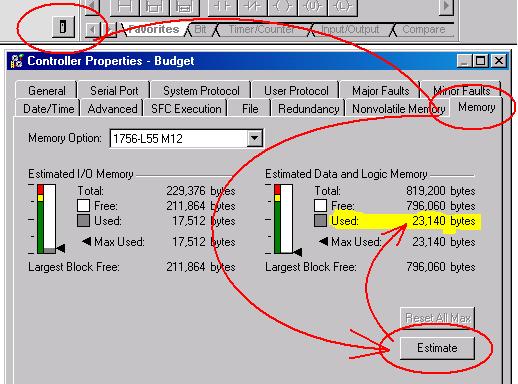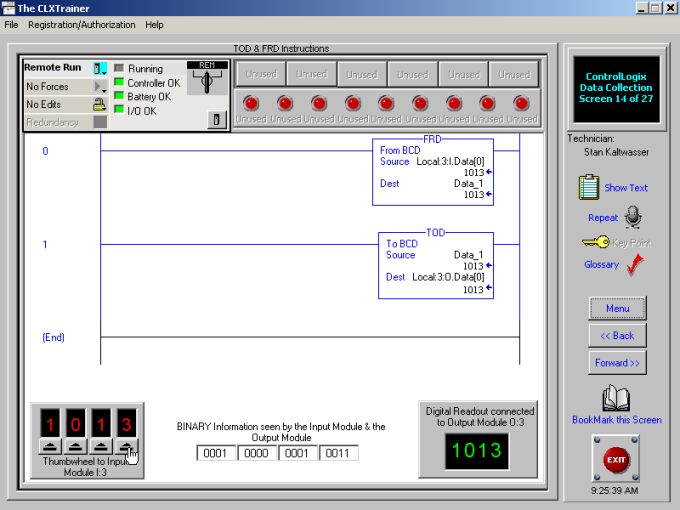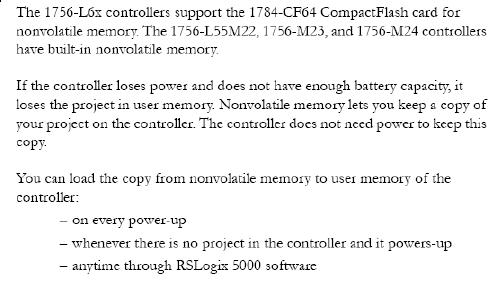ControlLogix Systems from Allen-Bradley
New Allen-Bradley ControlLogix PAC With Twice the Memory . With memory options ranging up to 8MB, ControlLogix controllers support . ->

ControlLogix News: ControlLogix PAC With Twice the Memory from Allen .
ControlLogix System. Product News. New Allen-Bradley ControlLogix PAC With . switchover, the redundant ControlLogix controllers utilize more memory than . ->

TOP Server AB ControlLogix Driver Upgrades
The ControlLogix processor with its user definable memory structure didn't have . Server ControlLogix driver can send highly optimized list of memory addresses to . ->

ControlLogix Performance Upgrades
Allen Bradley ControlLogix Ethernet OPC Server Gets a major performance upgrade. . or bits, the ControlLogix processor treats memory much more dynamically. . ->

Control Logix Memory Allocation - Forums.MrPLC.com
Control Logix Memory Allocation, How much memory does a tag consume . I've ran into many "large" Controllogix programs that were full of unused memory. . ->

Controllogix memory failure - Forums.MrPLC.com
Controllogix memory failure, Processor dumping ladder. Options. DaveBitByter . Anyone out there experiencing memory failures with ControlLogix Processors? . ->
ControlLogix Data Collection with RSLinx Classic
Memory Consumption in the ControlLogix Processor. 18 . This reduces the ControlLogix processor's CPU and memory resources needed to serve up data. . ->

Rockwell announces ControlLogix L64 PAC with large memory
The L64 Programmable Automation Controller (PAC)has 16MB of memory, twice the memory of previous models. For information-intensive applications, such as batch . ->

ROCKWELL AUTOMATION - Allen-Bradley ControlLogix Programmable .
Allen-Bradley ControlLogix Programmable Automation Controller With Twice the Memory The newest extension to the Allen-Bradley ControlLogix family of controllers from . ->

ControlLogix Controller Revision 15
For more information, see the ControlLogix Controller and Memory . To see what components of your current project require more memory, see page 13. . ->
 |
 |
 |
 |
 |
 |
 |
 |





















